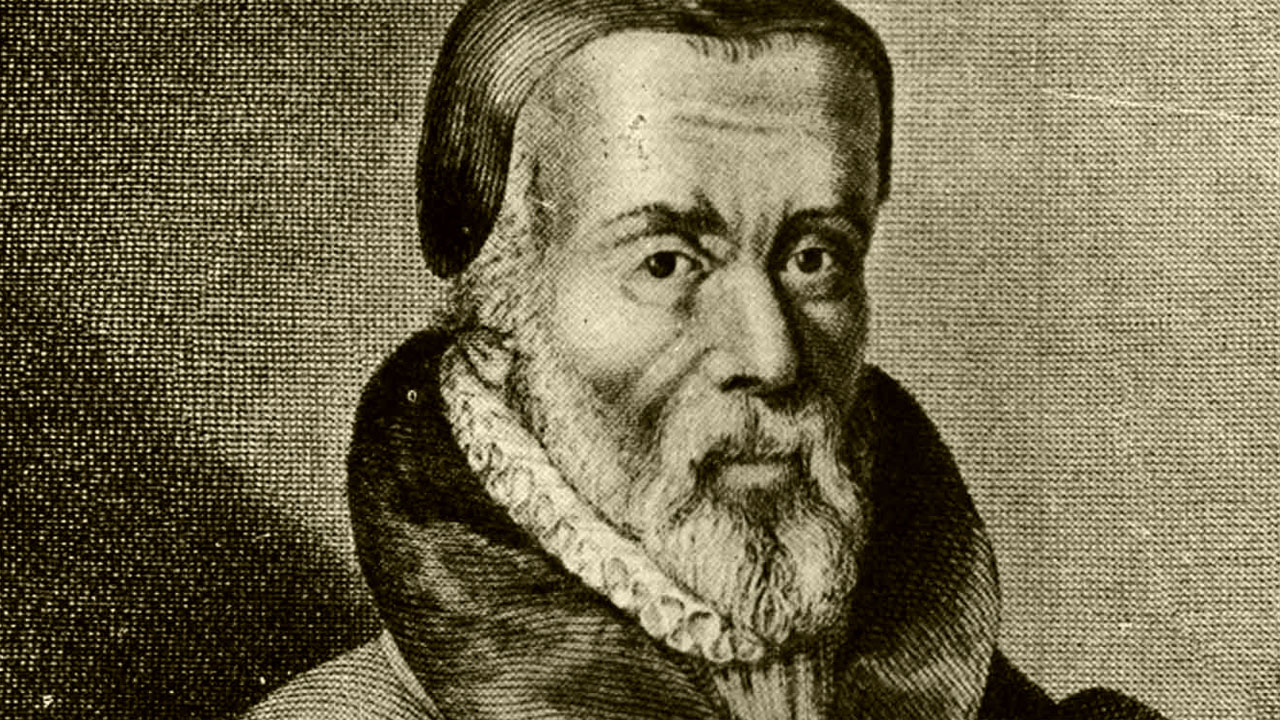Tyndale the Missionary
- Brian Overholtzer

As the week drags on, I am greatly anticipating the arrival of Saturday, October 31st. I can’t think of a more important day than this Saturday. I am not being facetious either. This day is extremely important, even as important as the election, we can’t forget about Saturday! You know what I’m talk about right? Reformation Day!
I’m pretty sure we were on the same page there. But if you weren’t aware, October 31st commemorates Martin Luther’s nailing of his ninety-five theses to the castle church door in Wittenberg, Germany on October 31, 1517. Martin Luther and other men such as Jan Hus, John Calvin and Ulrich Zwingli stood up against the corruption of the Roman Catholic Church and preached the unadulterated gospel from God’s Word. This era is known as the Reformation. Intertwined with the Reformation was the need for Bible Translation. Afterall, a Bible can’t be preached if it is not translated.
“How then will they call on him in whom they have not believed? And how are they to believe in him of whom they have never heard? And how are they to hear without someone preaching?” (Romans 10:13-15)
One of these courageous reformers was Englishman, William Tyndale (1494 – 1546). Tyndale answered the missionary call and set out on the daring mission to translate the Bible from the original languages into English. His mission was daring because it was highly illegal for anyone to read a Bible in their own language and particularly to attempt to translate it and print it. The Roman Catholic Church was aware of Tyndale’s endeavors and hunted him down relentlessly.
Tyndale’s possessed a relentless and uncompromising burden to uncover the dreadful cloak that the Roman Catholic Church draped over the gospel so that even the simplest commoner would be able to read God’s Word. Tyndale’s zeal for the preaching of God’s Word through a reliable and accurate translation of God’s Word is captured in a famous argument at a social event. Tyndale, engaged in a daring debate with a learned scholar was met this the appalling statement that, “we are better to be without God’s laws than the pope’s.” To this Tyndale replied, “I defy the pope and all his laws…If God spare my life, ere many years I will cause a boy that driveth the plough to know more of the Scripture than thou dost.”
Tyndale’s contribution to the reformation and to the doctrine of illumination is not the publishing of an impressive library of commentaries. Tyndale’s impact was to translate the first English New Testament from the Greek and nearly half of the Old Testament from the Hebrew. In the published New Testament translations, Tyndale imprinted another long-lasting mark on Christianity. Tyndale prepared extensive prologues that were designed to guide the reader before they read the freshly translated English Bible. In these prologues, Tyndale comments on the theology taught in Scripture and implored the reader to believe as they read the God’s Word in their own language. Not only did Tyndale produce the first translations of the English Bible but he also wrote the first study Bible!
Tyndale’s inspiration to translate Scripture derived from the truth of Scripture. In his prologue to the 1525 edition of the English Bible, Tyndale recounts his motivation to defy the government and embark on the daring mission to translate the Bible from the original languages into English. Tyndale explains, “Moreover I supposed it superfluous, for who is so blind tare why light should be shewed to them that walk in darkness, where they cannot but stumble, and where to stumble is the danger is the danger of eternal damnation.” Tyndale recognized that those sought his life were condemned because they were illuminated by the Holy Spirit.
Looking back at Tyndale’s explanation for his motivation to put on the cloak of a fugitive, we are able to see another noticeable mark imprinted by Tyndale’s writings. The Englishman’s motivation manifested from the shroud of tyrannical unbelievers who sought to keep the world from seeing the light of the gospel. They were void of the illuminating light of the gospel because they were in a state of condemnation. A few sentences later, the translator-theologian proclaims that “light destroyeth darkness.” Tyndale wasn’t only concerned about an accurate translation of God’s Word; he was tenacious for an accurate teaching of the Word as well.
Many mission organizations measure their level of success by number of converts or number of church plants. Mission organizations strive to reach greater numbers by drafting up new and innovative methods to communicate God’s Word and to convince people to believe it.
Tyndale, a scholar and renown citizen of his country, became a fugitive and eventually a martyr. He was hanged and then burned. Since William Tyndale, millions of English-speaking people have believed in the gospel. From these English-speaking believers, God has raised missionaries to reach people of other tongues and tribes and nations as well. His impact is breathtaking.
Tyndale’s missionary success was not planned by a mission’s committee, it did not spark from a conference, it was not the result of a unique strategy to blend the gospel in with the culture. Tyndale translated the Bible accurately, reliably and clearly so that Spirit empowered men could preach the Word to people with their own copies and would then be able to verify the message preached to them with the Word itself. This recipe sparked the Reformation in England and has been the launching pad for God-honoring missions since.
If Christianity wants to see another modern missions’ movement that feeds hungry souls with the Bread of Life, it needs to rededicate itself to the purity of Bible Translation and an uncompromised commitment to the preaching and teaching of God’s Word. We are blessed with having God’s Word before us and preached to us because this was the commitment of William Tyndale.










